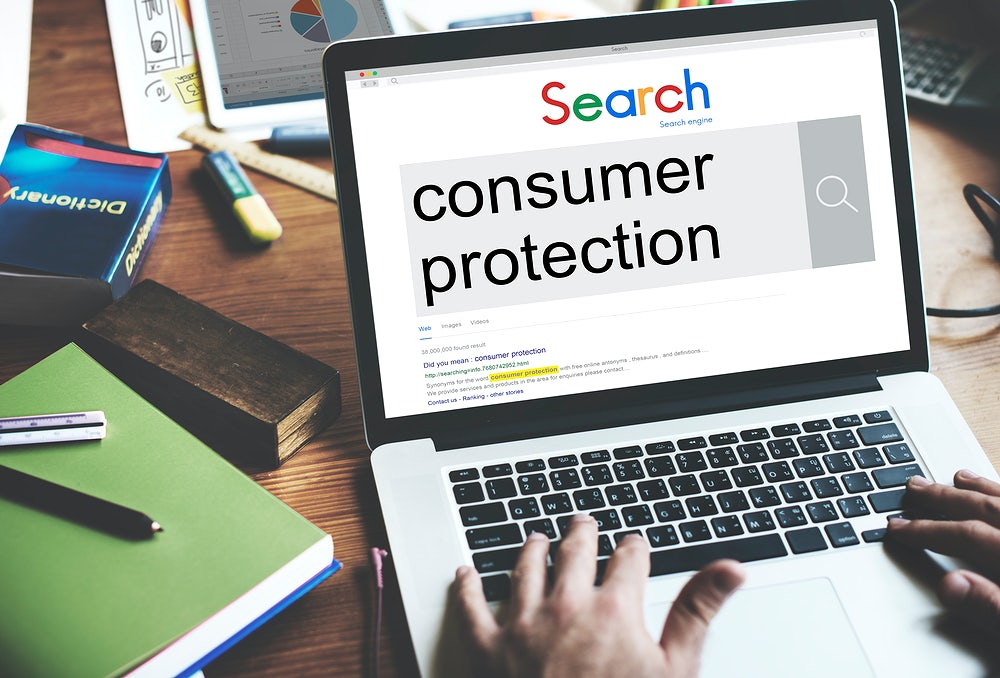If you’ve come across the phrase “consumer law” in the past, it is entirely likely that the first thing that comes to mind is false advertising.
You see an ad about a product that promises to deliver a world of outstanding benefits and exceptional results. Only for you to buy it and realize that it is not at all what it was propped up to be.
Be that as it may, consumer law is so much more than that and encompasses a wide range of industries. So, what is consumer law anyway, and what does it mean for you?
This article explores the answers to both these questions in depth.
What Is Consumer Law – Definition
Consumer law refers to a cluster of different laws that exist to protect the general public from predatory and unfair business practices. That way, you don’t fall victim to the unscrupulous ways in which some businesses operate.

It is at the heart of consumer protection. Here are some of the notable pieces of legislation that focus on this branch of law.
The Federal Food, Drug and Cosmetic Act
This is one of the many significant consumer protection laws in the US. It gives the federal government legal jurisdiction to regulate a wide range of consumables, including food, medications, cosmetics, and tobacco.
The Food and Drug Administration (FDA) is the federal agency charged with enforcing this particular law. It has the power to decide which products consumers can access freely over-the-counter and which ones require a prescription.
It also has the power to decide which products require the manufacturers to display warning labels on them and truthfully report on the ingredients used in the making of said products.

The Consumer Credit Protection Act
This 1968 legislation is designed to protect consumers against the potentially predatory practices of lenders. This law compels lenders to explain the true cost of borrowing money in a language and style that the average consumer, with little to no legal or financial background, can easily understand.
The Consumer Credit Protection Act consists of several critical consumer protection laws with some of the most notable ones being:
The Fair Debt Collection Practices Act
If you owe money to a financial entity and have perhaps fallen behind on your payments, this 1977 Act protects you against the unsavory practices of debt collectors.
The Act prohibits them from calling you at odd hours of the night or making repeated harassing phone calls about your unsettled debt. It gives you the right to communicate with them in writing to ask them to stop contacting you about the money you owe.
Nonetheless, the debt collection company can opt to file a formal suit against you to get the courts to intervene on their behalf.
The Fair Credit Reporting Act
It regulates how credit reference bureaus use consumers’ personal information. It compels these agencies to let consumers know when an organization or any other entity uses the information they have on them to deny employment or credit.
The Act also requires them to update or correct any inaccurate information they may have, and only report on up-to-date information.

The Truth in Lending Act
This law protects consumers from unfair billing practices and deceptive advertising. The Truth in Lending Act – also known as Title I – requires lenders to provide their potential and existing customers with a complete cost breakdown of the total cost of a loan.
This allows potential customers to shop around and find the best loan that fits their existing financial situation.
The Uniform Deceptive Trade Practices Act
A deceptive trade practice is any activity that a business engages in to lure or mislead the public into buying a product or service. The most common deceptive advertising examples include odometer tampering and false advertising.
Odometer tampering is the fraudulent practice of rolling back the mileage of a car to make it appear lower than it is (also see Lemon Laws).
So, if you end up buying a car based on its apparent low mileage, only to later realize that you may have fallen victim to odometer tampering, you have the right under US Consumer Laws to seek legal recourse against the offending party.
Since deceptive trade practices can affect both individuals and businesses across different states, several of them have taken up the widely-accepted Uniform Deceptive Trade Practices Act (UDTPA).
It touches on all the different forms of deceptive representation involving commercial goods and services. The states that haven’t adopted the UDTPA have laws in place that are quite similar to the Act.
Types of Deception in Advertising
There are several forms of false advertising. Some of the common ones include:
- Mislabeling – This involves the use of false or misleading information on product packaging or websites
- Bait-and-switch – This involves a company making claims on the price or quality of a particular product with no intention of selling or providing the commodity at the aforementioned price or quality
- Failure to disclose – This involves a company’s failure to include material and information about its products or services
- Flawed research – This involves a company making claims based on flawed research
- Trademark infringement / Product disparagement – This involves a company using another (often reputable) entity’s trademark to imply some kind of relationship between them; or falsely disparaging another company’s product in their marketing efforts
The National Consumer Law Center (NCLC) specializes in consumer-related issues on behalf of lower-income individuals.
If you believe you’ve been duped into purchasing and using a product or service, based on false advertising practices or any other form of misrepresentation of the product in question, the NCLC has a team of private attorneys and other legal services working in the organization to advocate for consumer reform.
Creating a Level Playing Field for All
So, what is consumer law in a nutshell? Well, it’s all the different pieces of legislation that exist to ensure that a business discloses exactly what it is you’re buying.
That way, you know what a product does, how it does it, and what it is made of. It also protects you from unfair, false, or misleading advertising, as well as ensuring that the debt collection practices you’re subjected to are fair.
The goal of consumer law is to ensure that every step of the sale-to-purchase process is geared toward creating a fair, transparent, and equitable environment for everyone involved.
If you have any legal questions about a potential consumer law issue, you can chat online with a Laws101.com attorney, or search through our list of consumer law attorneys.
